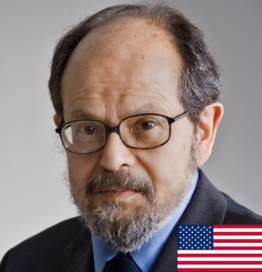
Professor Emeritus in the Department of Earth, Atmospheric, and Planetary Sciences at MIT. After completing his doctorate at Harvard in 1964 (with a thesis on the interaction of photochemistry, radiation and dynamics in the stratosphere), he did postdoctoral work at the University of Washington and at the University of Oslo before joining the National Center for Atmospheric Research as a staff scientist.
At the end of 1967, Dr. Lindzen moved to the University of Chicago as a tenured associate professor, and in 1971 returned to Harvard to assume the Gordon McKay Professorship (and later the Burden Professorship) in Dynamic Meteorology. In 1981 he moved to MIT to assume the Alfred P. Sloan Professorship in Atmospheric Sciences. He has also held visiting professorships at UCLA, Tel Aviv University, and the National Physical Laboratory in Ahmedabad, India, the Hebrew University in Jerusalem, the Jet Propulsion Laboratory in Pasadena, and the Laboratory for Dynamic Meteorology at the University of Paris.
Dr. Lindzen developed our current understanding of the quasi-biennial oscillation of the tropical stratosphere, the current explanation for dominance of the solar semidiurnal and diurnal tides at various levels of the atmosphere, the role of breaking gravity waves as a major source of friction in the atmosphere, and the role of this friction in reversing the meridional temperature gradient at the tropopause (where the equator is the coldest latitude) and the mesopause (where temperature is a minimum at the summer pole and a maximum at the winter pole). He has also developed the basic description of how surface temperature in the tropics controls the distribution of cumulus convection, and led the group that discovered the iris effect where upper level cirrus contract in response to warmer surface temperatures.
He has published approximately 250 papers and books. He is an award recipient of the American Meteorological Society and the American Geophysical Union. He is a fellow of the American Meteorological Society, the American Geophysical Union and the American Association for the Advancement of Science, and a member of the National Academy of Sciences and the American Academy of Arts and Sciences.
Dr. Lindzen has served as the director of the Center for Earth and Planetary Sciences at Harvard, and on numerous panels of the National Research Council. He was also a lead author on the Third Assessment Report of the UN’s Intergovernmental Panel on Climate Change – the report for which the IPCC shared the Nobel Peace Prize with Al Gore.